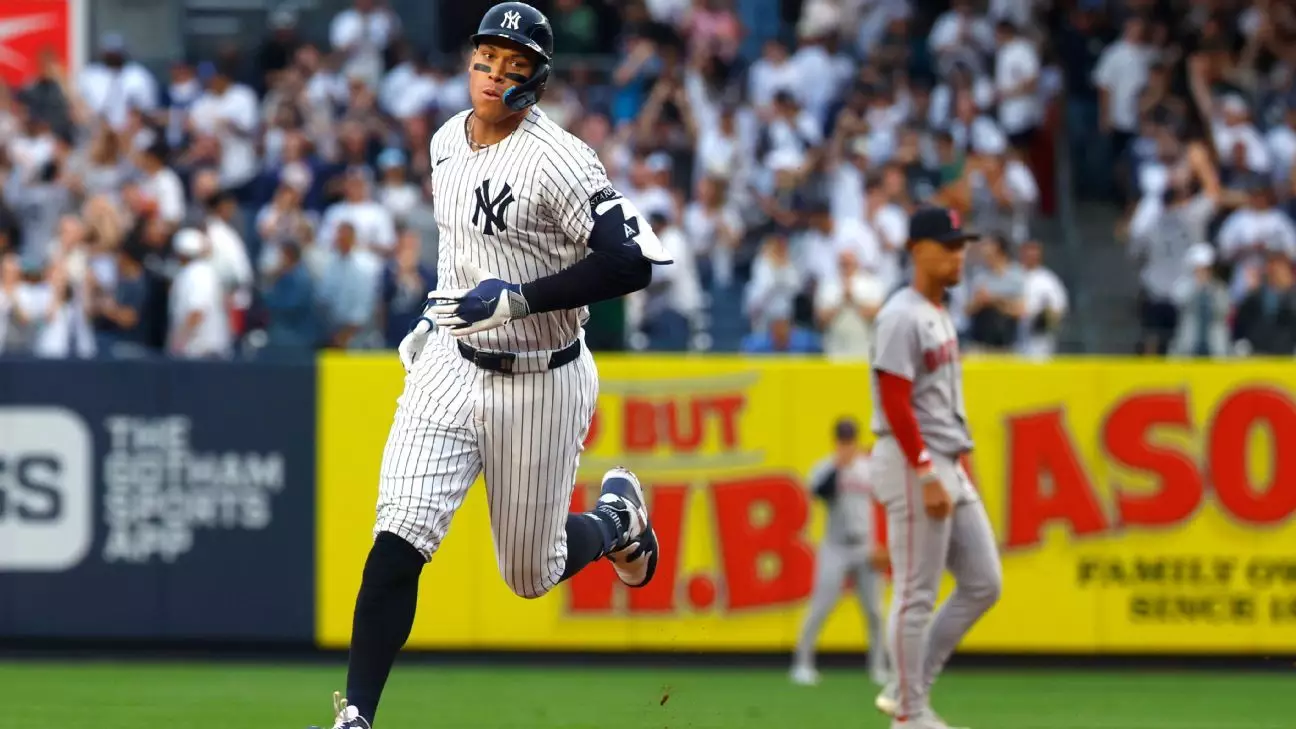The Yankees-Red Sox rivalry, once a roaring spectacle of baseball mischief and competitive fury, has seemingly lost its edge in recent years. It is an enduring narrative that has captivated not only dedicated fans but also casual observers of the sport. Amidst the backdrop of waning tension, a rookie’s provocative remark has reverberated through the hallowed grounds of Fenway Park, breathing new life into this storied feud. Hunter Dobbins, a young pitcher for the Boston Red Sox, shockingly proclaimed that he would rather hang up his cleats than play for the New York Yankees. These audacious words, delivered with the bravado of a rookie, sparked intrigue and, somewhat predictably, drew the attention of the Yankees’ captain, Aaron Judge.
The Rookie’s Gambit
Speaking candidly to the Boston Herald, Dobbins has injected a sense of nostalgia and defiance into a rivalry that has, at times, struggled to maintain its intensity. The audacity of a rookie defying the Yankees—a team that symbolizes both historical prestige and current dominance—has stirred the pot. It’s reminiscent of more heated debates when players would openly express disdain for their opponents in the spirit of competition. Judge’s reaction was not one of indifference but surprise, mirroring the feelings of many seasoned fans who may have assumed that such rivalry rhetoric had been subdued in an age seemingly dominated by corporate sports and amicable conduct.
Judge’s own admiration for the rivalry’s history adds depth to this story. When he hit a resounding home run against Dobbins shortly after hearing his comments, it wasn’t just a moment of personal triumph; it was a powerful statement against complacency in the face of corporate friendliness. “I was a little surprised,” Judge commented after he smashed a fastball deep into the stands. The emotion behind his response underlines a common sentiment: that an infused sense of rivalry—from both players and fans—remains essential for the vitality of the game.
Competitiveness or Foolhardiness?
Yet, one must indulge in a critical examination of Dobbins’ brash declaration. Jazz Chisholm Jr., a fellow player, expressed that while he appreciates competitive spirit, ruling out an entire league is reckless for someone at the beginning of their career. Is it truly wise for a rookie to dismiss the opportunity to don the pinstripes and be part of such a pristine legacy? This raises questions about the intersection of loyalty and ambition in the world of professional sports. For athletes like Dobbins, opportunities are fleeting, and the chance to play for one of the league’s most iconic franchises should be weighed carefully against personal affiliations.
Ironically, Dobbins himself represents a complex dichotomy—his bravado undermines the practicality of his aspirations. While fueling the rivalry can breathe new life into the game, one cannot ignore that there are consequences for such polarizing statements. Baseball thrives on rivalry, but it also thrives on a foundation of respect and professionalism. Dobbins’ comments echo the passionate heartbeats of diehard fans who wish to see their team prevail, but they also reek of an ill-timed bravado that may close doors rather than keep them ajar.
The Renaissance of Rivalry
Despite this, the very fact that Dobbins’ comment struck a chord with Judge and the wider baseball community signals a glimmer of hope for the Yankees-Red Sox rivalry. With the potential for trash-talking and playful banter being embraced more in the game today, we might see a renaissance—an influx of fierce competition that brings with it stories that make baseball so riveting. There is something intoxicating about rivalries that prompt passionate exchanges, and perhaps Dobbins’ candidness serves as a call to arms for players across the league to elevate their own game with the spirit of competition.
In this age of meticulously crafted narratives and player personas, will we see more athletes embracing the role of provocateur? Perhaps we are on the cusp of a baseball culture that recognizes the balance between professionalism and the fire of instinctive rivalry. And perhaps, in such a climate, we will once again witness a World Series that captures the hearts and imaginations of millions—a contest forged in determination, ambition, and fierce loyalty to one’s team.


Leave a Reply